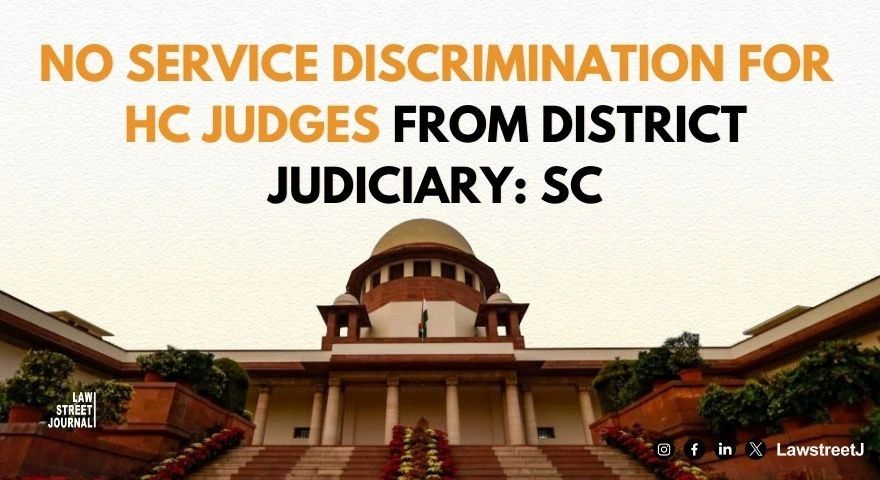NEW DELHI: The Supreme Court has said the High Court judges are one homogeneous group, and they can't be discriminated on service condition or pension benefits on the ground of having been appointed from district judiciary.
A bench headed by Chief Justice of India D Y Chandrachud said all judges of the High Court are entrusted with the same constitutional function of discharging duties of adjudication under the law.
"Once appointed, their birthmarks stand obliterated and any attempt to make a distinction between judges, either for the purpose of determining their conditions of service while in service or any form of retiral dues would be unconstitutional," the court said.
The court allowed a plea by Justice Shailendra Singh, and other judges from the Patna High Court, and quashed a letter of December 30, 2022 Union government's Department of Law and Justice.
The letter stated that judges appointed by direct recruitment to the state judicial service after the adoption of the New Pension Scheme in April 2004 by the state governments and subsequently appointed as High Court Judges are covered by the Contributory Provident Scheme of the state government, they would not be eligible to subscribe to the General Provident Fund.
In its November 5 judgment, the court held that the letter is not only based on a mis-appreciation of the statutory scheme underlying under Section 20 of the the High Court Judges (Salaries and Conditions of Service) Act 1954 but is fundamentally at odds with the constitutional status of judges of the High Court as a homogenous class.
The bench, also comprising Justices J B Pardiwala and Manoj Misra, said any determination of the service benefits of sitting judges of the High Court and the retiral benefits, including pension, must take place on the basis of the fundamental principle of non-discrimination between judges who constitute one homogenous group.
Article 217 of the Constitution specified distinct sources of recruitment for judges of the High Court from the district judiciary or, as the case may be, the Bar, but once appointed to the High Court, all judges formed one homogenous class of constitutional office holders, it pointed out.
The court also said the object of providing for a Parliamentary determination of service conditions, in particular, the salary, allowances and pension was to bring about national uniformity in the conditions of service both of sitting and former judges of High Courts.
"Therefore, it is not within the contemplation of the Constitution that the payment of salaries and the extension of other benefits both during and after service should be left to the vagaries of determination by individual States and the schemes which are applicable to civil service officers discharging duties in each State," the bench said.
[Read Judgment]















